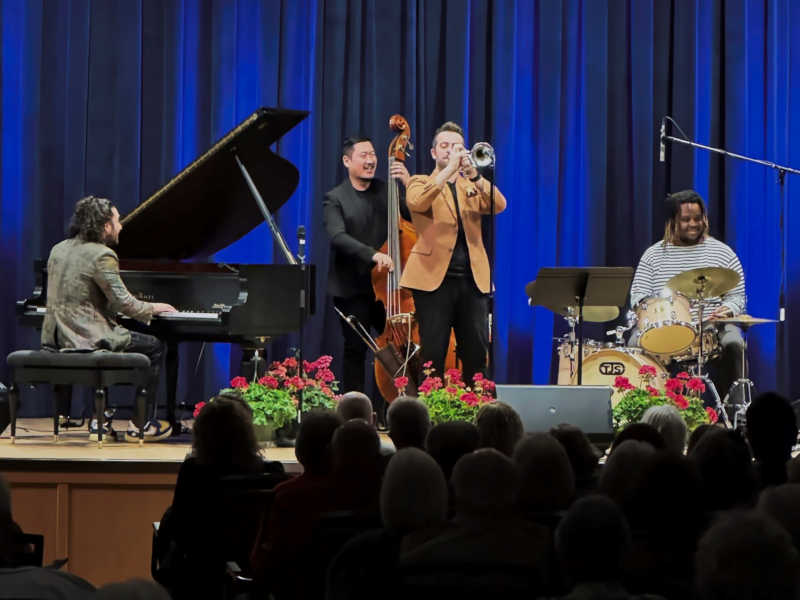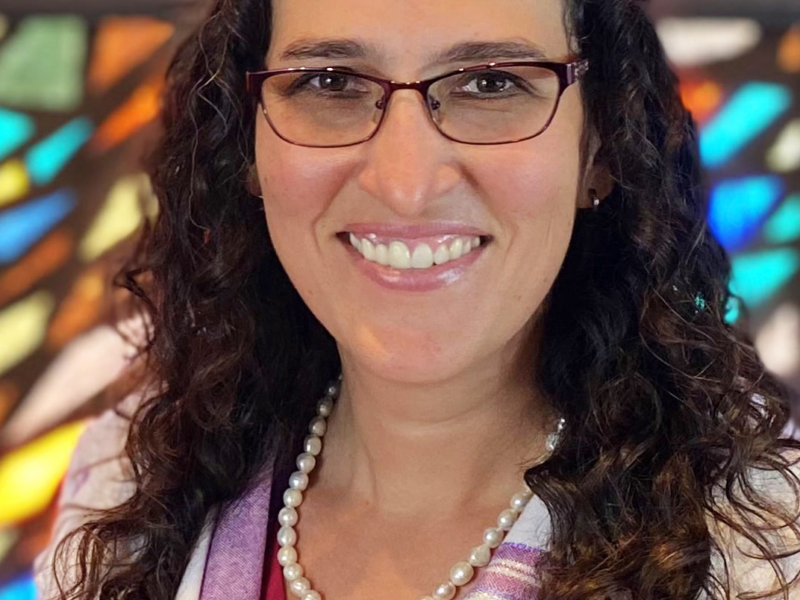Over the last 18 years, Jonathan Shapiro has written and produced iconic television dramas, including “The Blacklist,” “Mr. Mercedes,” “The Practice,” “Boston Legal ” and “Life,” as well as the upcoming HBO series “The Undoing” starring Nicole Kidman and Hugh Grant.
Before he entered the world of show business, he spent nine years working as a federal prosecutor. Currently an adjunct professor at UCLA School of Law, he spent eight years teaching classes at Loyola Law School and the U.S.C. School of Law.
In his latest role, he wears the hat of playwright for the show “Sisters in Law,” based on the 2015 book of the same name written by Linda Hirshman. The Phoenix Theatre Company is the first theater in the world to bring “Sisters in Law” to the stage.
The play features the relationship between two U.S. Supreme Court justices who are polar opposites and also modern-day legends: feminist idol Ruth Bader Ginsburg and Arizona native Sandra Day O’Connor. The play runs April 3-28.
Jonathan took time out of his very busy schedule to answer some questions about his part in “Sisters in Law.”
Q: You’re both a writer and a lawyer – is that what attracted you to this project?
A: As a writer and lawyer, I can’t help but be fascinated by how the first two women on the U.S. Supreme Court related to one another, handled disagreements, supported one another, or didn’t. The fact is, writers and lawyers have the same job; we try to make sense of human beings in the midst of conflict, to understand their motives and desires, to think deeply about how their words and actions reveal their character, their truthfulness, their capacities and deficits. In the entire history of our country, I don’t believe there are two more consequential or complex women than these two. You couldn’t make up better characters or facts. The arguments they have, the conflicts portrayed, it’s all true.
Q: Is this your first foray into playwriting?
A: Actually, it’s my second, my wife and I co-wrote a play based on our marriage. And like any good marriage, we are still working on it. Her name is Betsy Borns-Shapiro (the Shapiro is silent; she hastens to add). She wrote for “Roseanne and Friends” and co-created the long-running CW series “All of Us” with Will and Jada Smith. Betsy is the reason I got into the show business. After our twins – Abraham and Sarah – were born, she said that if I could sell a script and get into the Writer’s Guild of America, we could double our health insurance coverage. Always marry a Jewish woman, this is my advice.
Q: What was the most challenging aspect of turning Linda Hirshman’s book into a play?
A: The book is a deeply researched, richly intellectual dual biography of two long and complicated lives. Figuring out how to tell the true story of their relationship on stage, in 90 minutes, meant distilling a vast amount of information into a taut, truthful, provocative narrative that reveals the essence of who they were, and who they were to one another. Humor helps. They are serious and driven women, but there are also very funny. Sometimes, even on purpose.
Q: On your website, you say, “I believe that the art of storytelling is the liveliest, most human of all the arts, and the most important one.” Was it difficult to apply your skills as a storyteller to a piece of work that you did not write?
A: Not at all. As a lawyer, I was always stuck with the witnesses and evidence fate delivered. I couldn’t cast new characters or make-up facts. Learning how to turn those pre-existing elements into a persuasive case is what makes being a trial lawyer its own form of art. So adapting a wonderful book like this was a terrifically enjoyable challenge.
Q: Was there something surprising you learned about the relationship between Ruth Bader Ginsburg and Sandra Day O’Connor that you didn’t expect?
A: I didn’t expect to find how important, inspiring and relevant their relationship was as a model for Americans to make our democracy great again.
Q: You’ve written and produced television shows for almost 20 years now, how did the creative process differ for producing a play?
A: Writing for television is a bit like working for a catering business, collaborating with a hundred people to make a huge number of pleasing meals that aren’t too spicy or otherwise challenging to a vast number of palettes. Writing a play is like making a home cooked meal with friends and new acquaintances for what you hope will be the best dinner party ever, where even the most serious arguments usually end up in laughter.
Q: What is the message that you want people to take away after seeing “Sisters in Law?”
A: Women in power handle power in ways that should make us all want more women in power.
For more information or to purchase tickets to Sisters in Law, visit phoenixtheatre.com.





